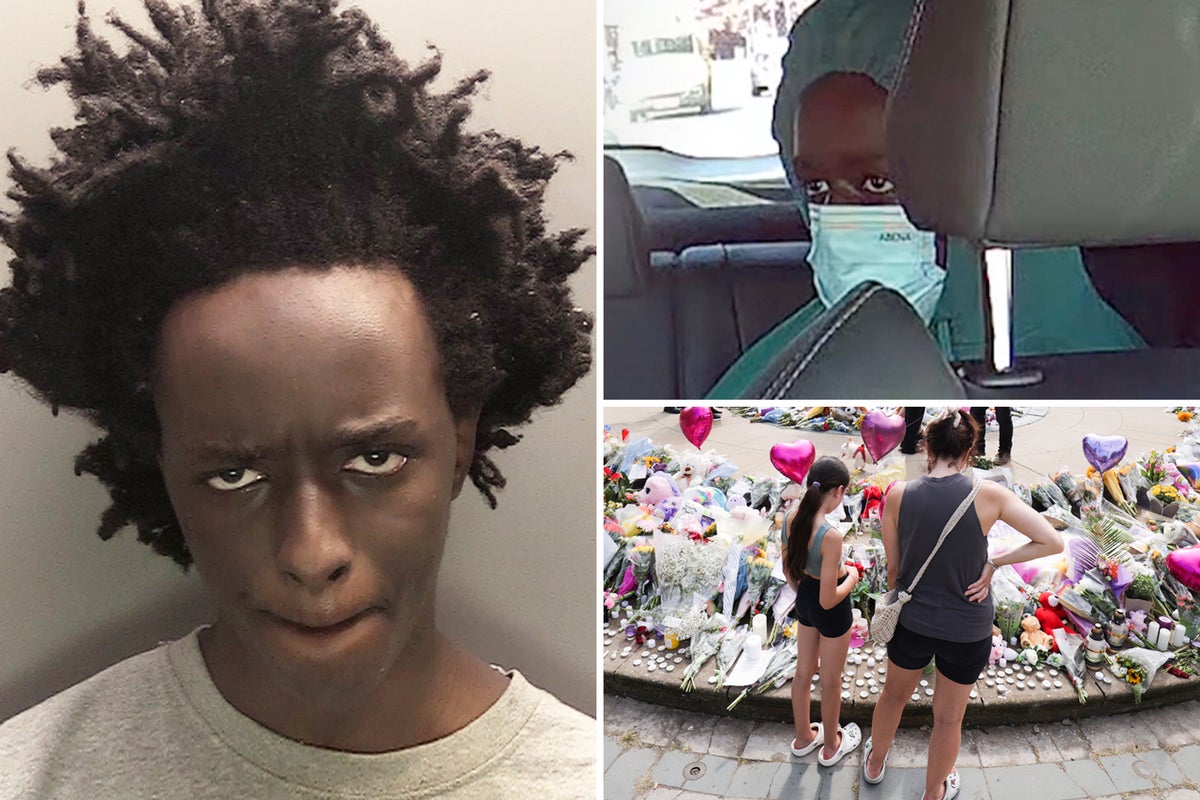
There was enough evidence to consider the Southport killer a terror threat, a review of the handling of Axel Rudakubana has shown.
Rudakubana was given a life sentence with a minimum term of 52 years – one of the highest minimum terms on record – for murdering Alice da Silva Aguiar, nine, Bebe King, six, and Elsie Dot Stancombe, seven, at a Taylor Swift-themed dance class in Southport on July 29 last year.
He also attempted to murder eight other children, who cannot be named for legal reasons, as well as class instructor Leanne Lucas and businessman John Hayes.
Three separate referrals were made to Prevent about Rudakubana’s behaviour in the years before the attack, as well as six separate calls to police.
Rudakubana had shown interest in the Manchester Arena bombing in 2016 that killed 22 people, and had talked to others about stabbing people.
Home Secretary Yvette Cooper had announced a public inquiry will be held to look at any “missed opportunities” to identify Rudakubana’s murderous intent and she ordered a “thorough review” of the Prevent referrals.

Announcing the findings of the review in the House of Commons on Wednesday, Dan Jarvis, the security minister, said it had found there was “sufficient risk” for Rudakubana to have been managed through the Government’s counter-terror Prevent programme.
Mr Jarvis told MPs that counter-terrorism officers were wrong to close his case “prematurely” when there was “sufficient concern” to keep it open.
Rudakubana had been referred to Prevent three times between December 2019, when he was aged 13 and April 2021, when he was 14. Those referrals were made by his schools.
“The first referral reported concerns about him carrying a knife and searching for school shootings on the internet. The second referral was focused on his online activity relating to Libya and Gaddafi. His third referral was for searching for London bombings, the IRA and the Israel-Palestine conflict,” Mr Jarvis said.
The security minister said too much emphasis was put on a lack of an ideology behind Rudakubana’s interests, which meant he was not put further through the Prevent programme.
Mr Jarvis said: “The review concluded that too much focus was placed on the absence of a distinct ideology, to the detriment of considering the perpetrator’s susceptibility, grievances and complex needs.
“There was an under-exploration of the significance of his repeat referrals, and the cumulative risk, including his history of violence.”
Mr Jarvis added: “The overall conclusion of the review is that he should have been case managed through the channel multi-agency process, rather than closed to Prevent. This would have enabled to co-ordinated multi-agency risk management and support.”
Ms Cooper told the Times: “What that [the report] concluded was that in this case, he should have been referred to the Channel programme… that too much focus was placed on the lack of ideology.
“Not enough focus was also given to the issues around the fact that there were three different referrals. And it already does include, in the Prevent guidance, the need to look at cases where, for example, there is an obsession with a school massacre or extreme violence.
“Clearly in this case, although the reviews concluded that Rudakubana should have been referred to Channel, he wasn’t. And it raises wider questions for the Prevent programme about the way in which it deals with… some of the cases where there is mixed or unclear ideology.”

It is currently voluntary to take part in the Prevent and Channel programmes, but Ms Cooper told the Times the Government will introduce new terror orders for young people who refuse to engage with them as part of the upcoming Crime and Policing Bill.
The head of Counter-Terrorism Policing, Matt Jukes, said of the review: “It describes decisions made in line with policy in place at the time, in a system that was not equipped to deal with emerging risks that were very different to those it had been built to address.
“In this case, there were at least 15 contact points with public services – health, education and social care systems, and the police.
“We want to see a system where every one of those contacts counts, and where the sum total of all of them taken together is seen as the red flag that it should be.”
Mr Jukes said that cases where young people are drawn into extreme violence online, combined with mental health and social challenges, should have “a clear home” rather than being passed between organisations.







